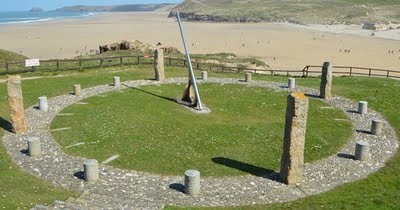Our Historical Horology post of two weeks back inspired our friends over at Offshore Limited (link to review) to reach out, as they had some more information for us. In the article, we covered why we say “o’ clock” when stating the time. Lorne Giffords, the guy behind the brand, had some additional light to shed on the subject – specifically, where the word clock even came from.
Rather than trying to rephrase things (as he’s got some nice turns of phrase), I’ll just quote what he had to say on the subject:
“The word ‘clock’ comes from the Celtic ‘clocca’, meaning bell, so it’s likely that the invention of a mechanical ‘ring the church bell at the right time so the serfs know it’s lunch/dinner/church/home time’ machine occurred in the Celtic speaking far west of England, Devon or Cornwall, in the 1200’s.”
Obviously, with that sort of background, this is a topic that some research has been done on. Over at his site, Lorne starts from the beginning of time (well, measuring time) and brings things through to the current age. Far from being a boring history lesson, though, you get some practical science and engineering worked in (ie, how a pendulum clock works), as well as a good bit of humor and editorializing.
All told, this is a great mix, at least if you share my sensibilities and aversion to dry history lessons. His article is definitely worth a read, as its another very nice overview of how we got from the early clocks to what we have today on our wrists. As an added bonus, if you’re curious as to how we arrived at 12 hours in the day, he’s got another article on that subject you can see right here. Oh, and if you haven’t seen our review of the Offshore Professional watch they produce, you can check it out right here (parts one, two, and three) – it’s a great, solidly-built chronograph worth familiarizing yourself with.










